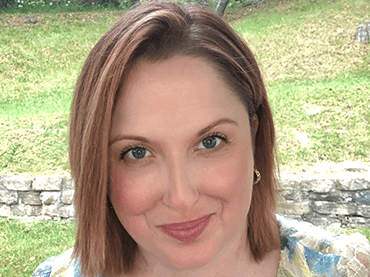Meet Lisa Tork
When Lisa Tork wasn’t feeling well at the start of November 2018, she thought she simply had the flu. But by the middle of the month, she still couldn’t shake the illness, and it wasn’t long before the situation turned worse.
“My daughter came home from school and found me,” Lisa recalls. “I was completely out of it.”
Lisa’s daughter, Emily, and husband, John, brought her to the local hospital in Wheeling, WV. That’s where doctors found a large clot in the left ventricle of Lisa’s heart. She was quickly transferred to UPMC Montefiore, along with her test results.
“The doctors in Pittsburgh couldn’t believe what they saw,” Lisa explains. “They were amazed that I was still alive.’”
Shortly after Lisa’s arrival, she was evaluated by Mary Keebler, MD, medical director of the UPMC Advanced Heart Failure Center. It was clear to Dr. Keebler that Lisa’s heart wasn’t able to pump a sufficient amount of blood to the rest of her body, a condition known as cardiogenic shock.
Lisa was quickly transferred to nearby UPMC Presbyterian, where she was placed on life support. Doctors determined that Lisa would need a new heart, and in December, they implanted a left ventricular assist device (LVAD) to act as a bridge-to-transplantation.
Lisa spent the month of January in cardiac rehab at UPMC before being sent home to West Virginia where she was encouraged to continue building up her strength.
“It took some time,” Lisa says. “But I knew I needed to put myself in position for the best possible shot at receiving a transplant.”
Getting the Call
Emily Tork was a senior in high school in May of 2019; the month when her mother was added to the transplant waiting list. Two weeks later (and only two days after Emily’s graduation), the call came in.
Lisa returned to UPMC Presbyterian and received her new heart. Once the successful surgery was completed, she spent only eight days in the hospital, despite the average post-transplantation stay being two to three weeks.
Lisa also didn’t require the typical inpatient rehab because she had gotten so much stronger putting in the hard pre-transplant work at home.
“My recovery is beyond what my doctors and I ever believed it could be,” Lisa explains. “They told me I’ve defied everything they thought would be possible.”
A few weeks after returning home, Lisa’s health care team started trusting her to take on tasks without assistance. She began walking two miles a day, as well as cycling five miles a day on her new exercise bike.
“I’m now able to do five-mile walks. No problem,” Lisa says with a smile. “And I do 12 miles on the exercise bike, twice a week.”
Life After Transplant
Lisa is thoroughly enjoying life with her new heart, especially the time she gets with Emily, after missing most of her senior year of high school. Two months after the transplant, the two of them, along with John, celebrated with third row tickets to a Pat Benatar concert.
Lisa participated in the 2020 Transplant Games of America, a combination of physical and mental activities for transplant recipients and living donors. She also became a volunteer for the Center for Organ Recovery & Education (CORE) and an ambassador for the United Network of Organ Sharing (UNOS).
“I want to give back to the transplant community who gave me back my life,” Lisa explains.
The 46-year-old will never forget that first night when she arrived in Pittsburgh – critically ill and placed under the care of a doctor who knew what needed to be done.
“If there was ever someone who I was meant to cross paths with in life, it was Dr. Keebler,” Lisa says. “She has been there since the beginning and is such a comfort for me. I trust her 100 percent, and if she tells me to do something, that’s what I am going to do.”
And Lisa will forever be grateful to Dr. Keebler’s colleagues as well.
“The UPMC transplant team is incredible. Someone is working 24 hours a day, seven days a week, and I always felt supported. Any time I needed help, they were right there.”
More than four years after her heart transplant, Lisa is back to her normal routine. She continues to meet with the UPMC Heart Transplant team through regular in-person and virtual appointments to monitor her condition. Lisa has made it a priority to be physically active each day, which has helped her to achieve remarkable milestones.
“I work out five days a week at home and ran a 5K recently,” says Lisa. “I was active before my transplant but noticed myself slowing down about a year before the procedure. Now, I’m in even better shape than I was years before my transplant.”
Lisa has been enjoying time with her family and was proud to attend her daughter, Emily’s, college graduation ceremony in Dec. 2022, where she was valedictorian of her graduating class.
“Emily graduated from high school four days before my transplant, so I attended her high school graduation in a wheelchair,” says Lisa. “But when she graduated from college, I was able to just walk into the ceremony. It was a great feeling.”
Lisa continues to stay involved in the transplant community and is an active patient ambassador for UNOS. She uses her experience to offer help and support to others in their transplant journey.
“I’ve met so many people who need a transplant or who have received a transplant,” says Lisa. “I enjoy mentoring people through this process and meeting new people in the transplant community. It really feels like I’m able to help someone else with my experience.”
Lisa’s treatment and results may not be representative of all similar cases.

















